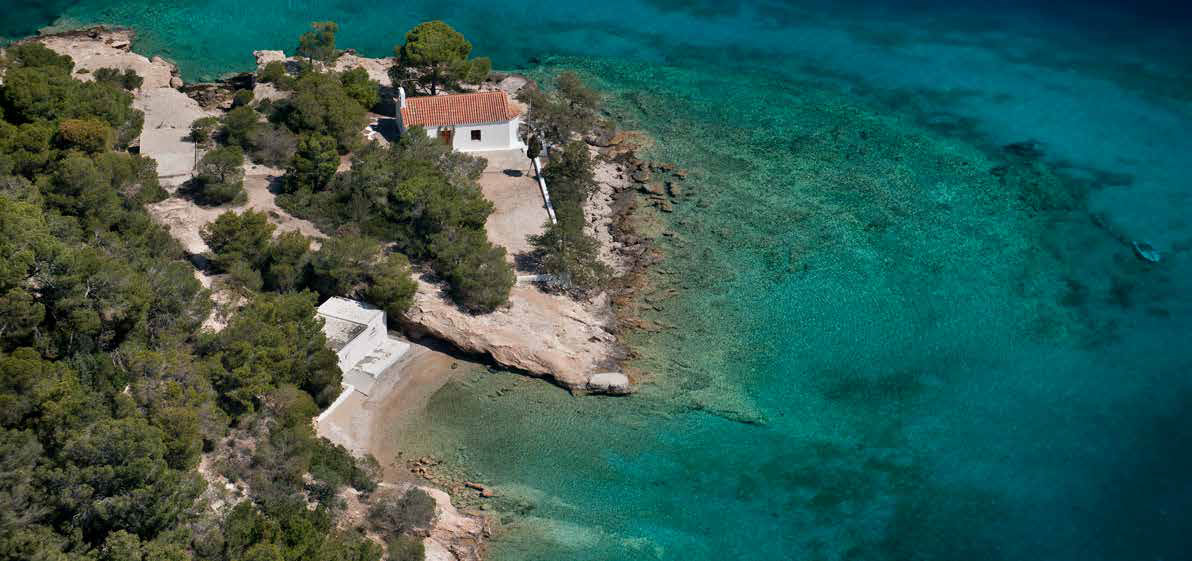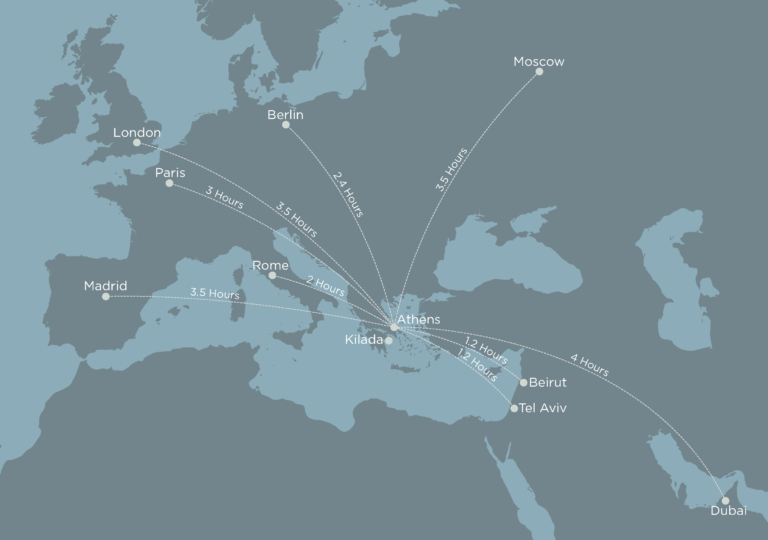Greek Language Basics when Visiting Kilada
The list of things you may need to consider when visiting Kilada, Greece to buy property, look at apartments or check out the real estate market in general, probably requires a little more thought and consideration than if, for example, you were just visiting for a short holiday.
Language is one area where a little bit of preparation might help. This is the first of three short articles on the topic of Greek language. In this one we look at the background to the language, in parts 2 and 3 we will look at specific phrases you might find helpful in everyday life when travelling around Greece.
Arriving in Greece
On the to-do list: Dust off your camera to capture the awe-inspiring ruins and dazzling cliffside sunsets, find the perfect island-hopping outfits for stylish Instagram snaps in front of white-washed houses draped with bougainvillea, and prepare yourself to come back a few pounds heavier from all the feta and haloumi doused in olive oil that will surely be eaten at many a quaint taverna.
Lower on the list of priorities may be picking up a few basic Greek phrases to converse with locals while you’re there. Even though Greece is a popular tourist destination, few people consider trying to learn Greek as part of their travels.
The Greek Alphabet
The culprit is likely the Greek alphabet. If you’re unfamiliar, think of the angular shapes used by college fraternities and sororities everywhere. Unlike the Latin alphabet of romance languages, Greek letters are indecipherable for English speakers, making the language more difficult to learn than Romance languages such as Spanish, Italian, and French.
But don’t let that stop you from trying to pick up some Greek, especially before you leave for your trip. Michaela Kron of the popular language learning mobile app Duolingo, told Travel + Leisure of a survey they did of their users: “One interesting finding… was that many make the mistake of not learning a language ahead of an international trip, but in hindsight wish they had done it. We actually found that many of our users pick up Duolingo after a trip, likely because they are inspired by their travels to pick up a new language.”
English as a Second Language
While you’ll find that almost everyone speaks a basic level of English in the most popular tourist destinations, Greeks are a very friendly and social people, and they will love if you can trade a bit of banter with them in their own language — even if they poke fun at you for trying. When they treat you to a free slice of halva cake or a shot of ouzo at the end of your meal, you’ll know you scored points for trying.
Get ahead of the curve and try to learn some common phrases (and even a little Greek slang) before you go. We assure you that attempting (and even butchering) the most basic of phrases with locals will make the trip more memorable — and perhaps even lead to a lasting friendship.
In parts two and three, you’ll find phrases written first in Greek and the phonetic pronunciation following in parentheses, with emphasis placed on the syllables in capital letters. Use Google Translate to play an audio of how these phrases are pronounced.
Part Two – Language Basics
Part Three – More Social Language (Coming Soon)
Historic Greece
Travelling around Greece and visiting different places is easy thanks to the excellent ferry and road network. Yes, it is tempting to stay in Kilada to enjoy your villa in Kilada, but why not make the most of this beautiful country.
The Argolis Region
The Great Theatre of the Asklepieion at Epidaurus (35 miles)
Set in stunning natural surroundings this theatre, built in the classic Hellenistic style more than 2,000 years ago, and largely unchanged since, offers a timeless and still functional view of Greeks historic past.
Archaeological Museum of Nafplio (45 miles)
Built in 1713, this archetypical structure holds Greek historical artifacts pre-dating civilization. The Paleolithic cluster of alters dating back past 20,000 BC The museum contains tools, jewellery and pot-made vessels giving an incite into Greek pre-History.
The Palamidi Castle (60 miles)
More modern history presents the Palamidi Castle. Built by the Venetians in 1714 to protect their commerce in the area, the castle set almost 400 feet up, high and canted on the hillside. It presents an awe inspiring monument to Greece’s important role in Mediterranean trade.
Friendly Greece
One of the best ways to describe Greece is as people-friendly. The local Greek population genuinely love visitors and many ex-pats become part of the local community. The social culture in Greece is much more open when compared to living as an ex-pat in many other European countries. Local events form part of the rich local culture and tapestry of life in Greece.
MEMBERSHIP PROGRAMME


